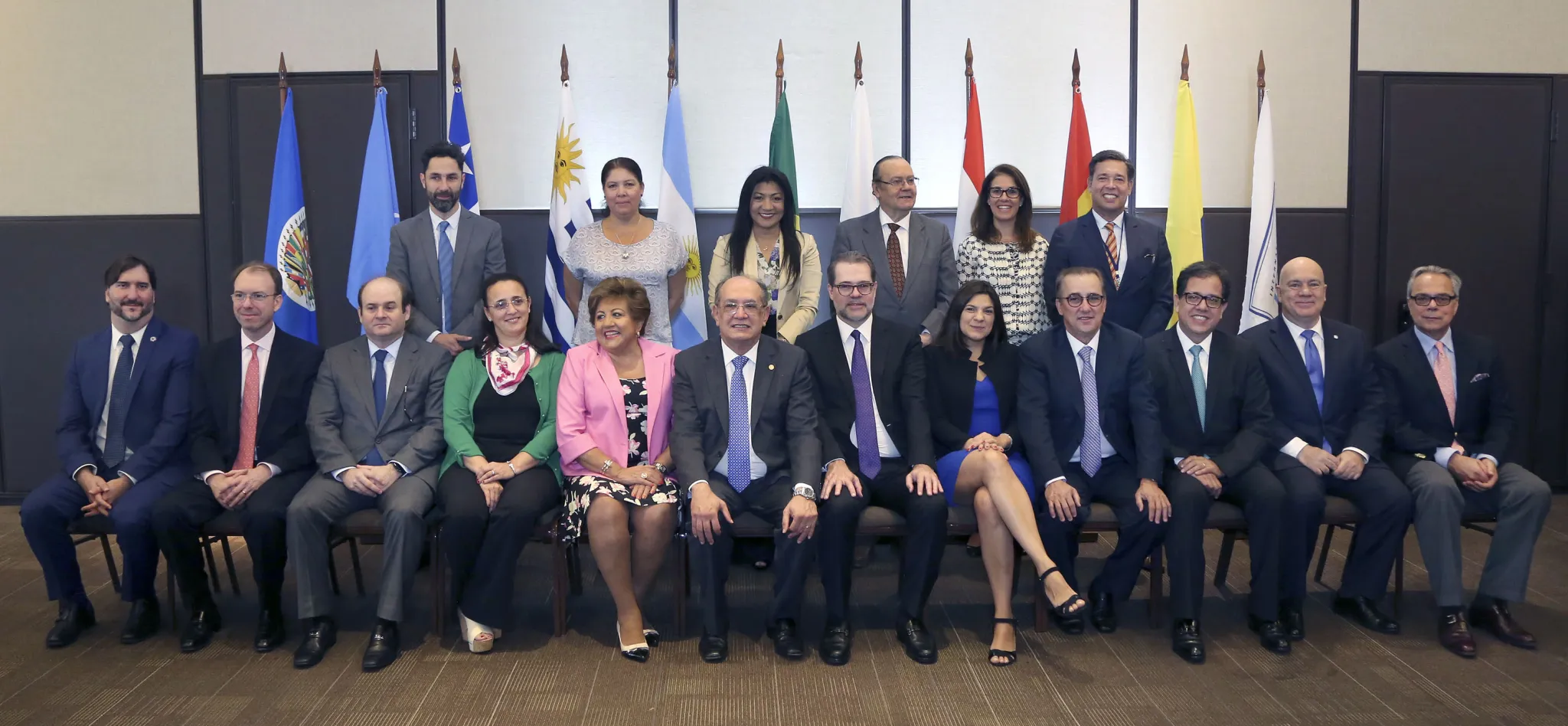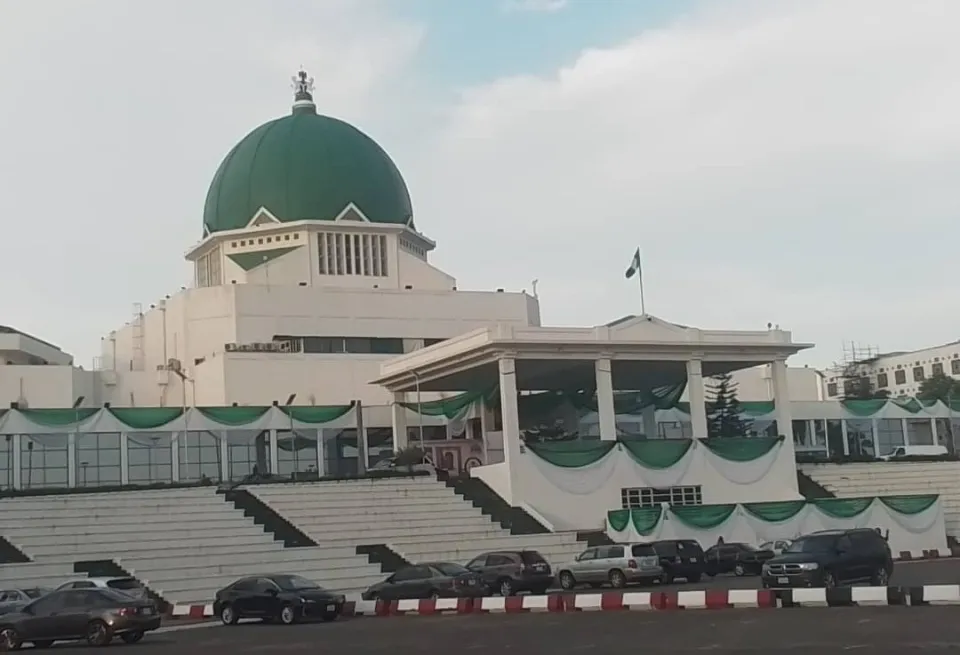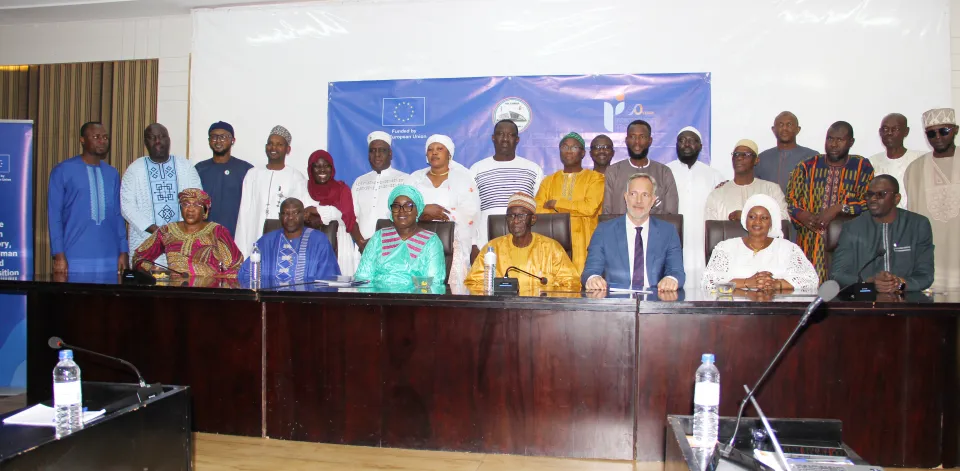
On 15 September, the Supreme Electoral Tribunal of Brazil organized a regional conference on ‘Democracy and Elections’ as part of International Day of Democracy celebrations. The conference was attended by electoral body representatives of MERCOSUR countries, International IDEA, the United Nations, the Organization of American States, Human Rights Watch and other prominent electoral experts.
Este articulo se encuentra disponible en Castellaño.
In commemoration of the International Day of Democracy on 15 September 2017, Daniel Zovatto, Regional Director for Latin America and the Caribbean for International IDEA joined the Supreme Electoral Tribunal (TSE) of Brazil’s regional conference of the electoral bodies of member countries of the Southern Common Market (MERCOSUR).
The conference took place in the beautiful and strategically located city of Foz de Iguazú, State of Paraná, Brazil. It was attended by representatives of the electoral bodies of the four MERCOSUR member countries—Argentina, Brazil, Paraguay and Uruguay; federal judges from the Republic of Brazil; the Resident Representative of the United Nations, Niky Fabiancic; the Director of the Directorate of Electoral Cooperation of the Organization of American States, Gerardo de Icaza; and representative of Human Rights Watch in Brazil, Maria Laura Canineu.
The conference was organized around two main thematic panels: "International cooperation for the strengthening of democracy and electoral systems" and "Promotion of democracy and the role of civil society".
During the concluding session, "Advances and challenges for democracy and the electoral systems of MERCOSUR", the representatives of the electoral bodies of MERCOSUR member countries analyzed the main challenges and opportunities that their respective countries face in terms of democracy and electoral processes. In his opening speech, the President of the TSE of Brazil, Minister Gilmar Fereira Mendes pointed out, "Here, we have an opportunity to examine and discuss the current political-economic order in MERCOSUR countries, to identify the problems faced by our societies, as well as to evaluate the possibilities of international cooperation to improve electoral systems and strengthen the legitimacy of political representation in our respective countries".
During his presentation, Zovatto analyzed Latin America’s political and electoral situation, in light of the region coming close celebrating four decades since the beginning of the Third Wave of Democracy. He also drew attention on the wave of elections that Latin America will experience in the next fourteen months, when eight presidential elections, one midterm election and several regional and local elections will be held in the region. During this period, two of the four MERCOSUR countries, Paraguay and Brazil, will hold presidential elections and Argentina will hold mid-term legislative election.
Zovatto stated that the issues that currently dominate the regional debate are: the quality of democracy and integrity of elections, as well as the relationship between money and politics (closely linked to the serious corruption scandals present in a large number of countries); gender equality; the crisis of representation; the growing unease of citizens with politics; the important role of social networks and their impact on politics and elections; and the growing challenges to democratic governance. He also addressed the current crisis in Venezuela, advocating for greater commitment by the electoral bodies of MERCOSUR countries to support a peaceful, negotiated and an electoral solution within the terms proposed by the Lima Declaration and in accordance with the principles of the Inter-American Democratic Charter.
Zovatto concluded his speech by calling for an increase in the levels of horizontal cooperation among the electoral bodies of MERCOSUR countries, aimed at strengthening the integrity of electoral processes and deepening the democratic quality of the countries in the region.



